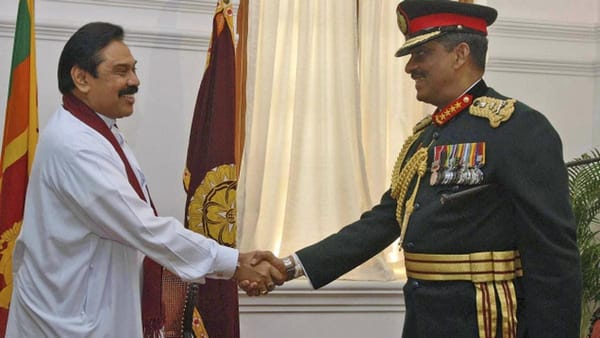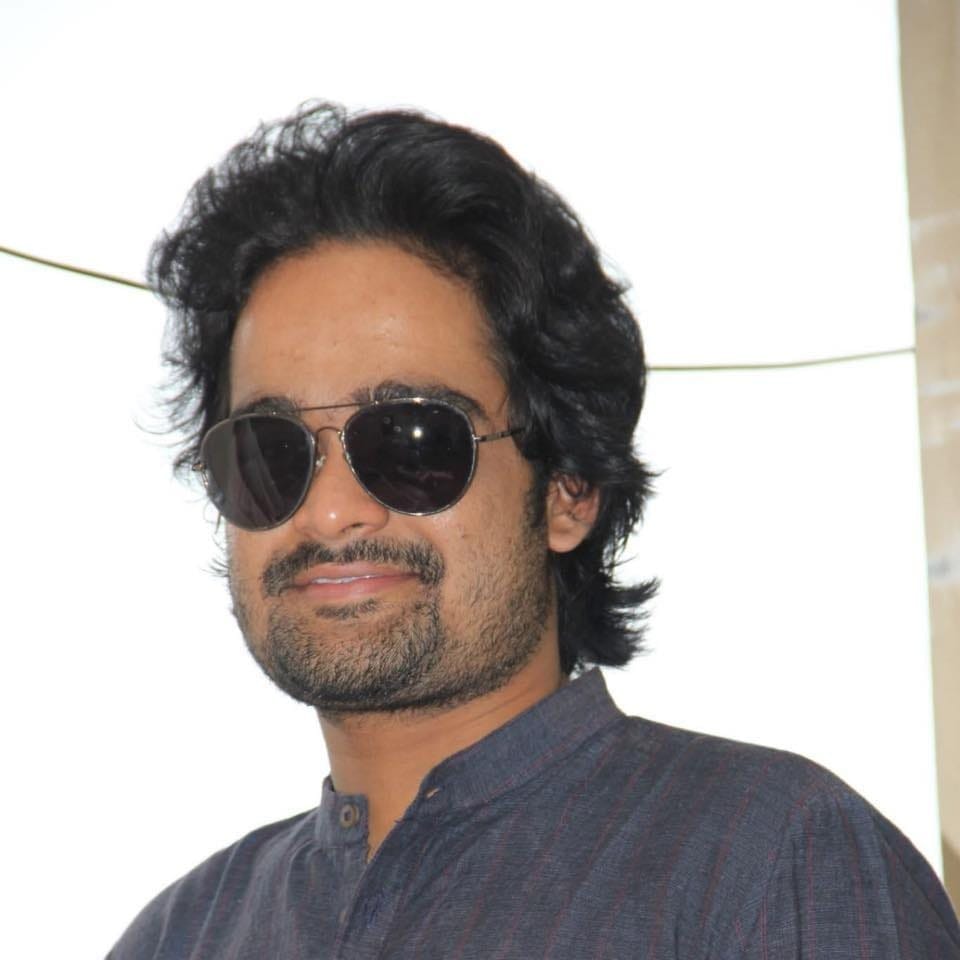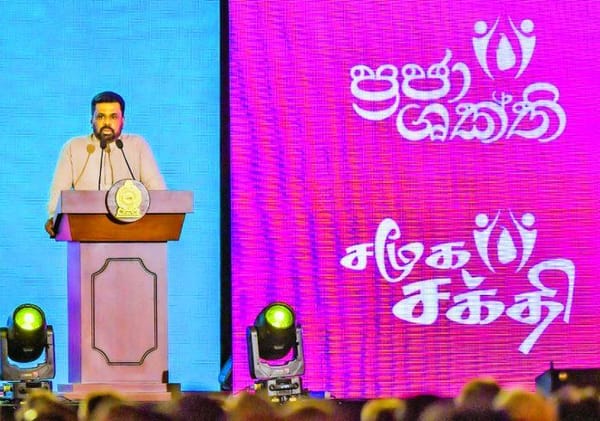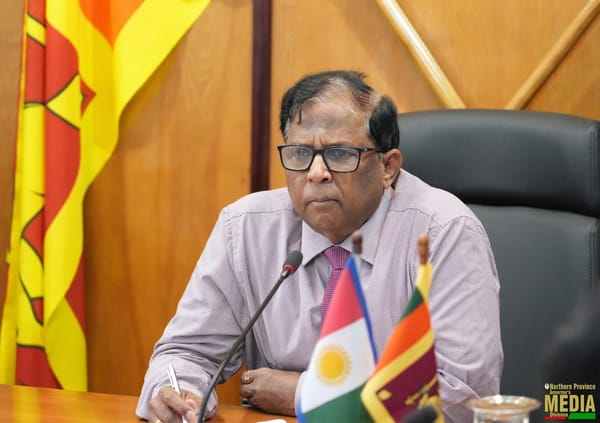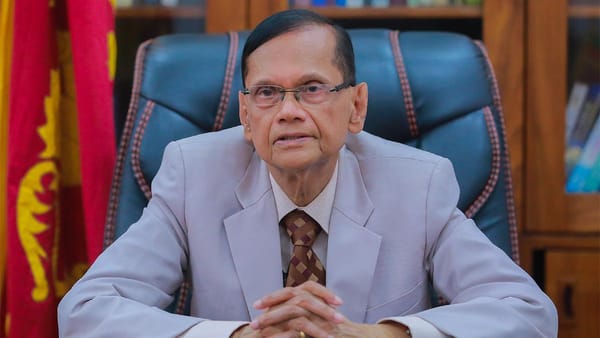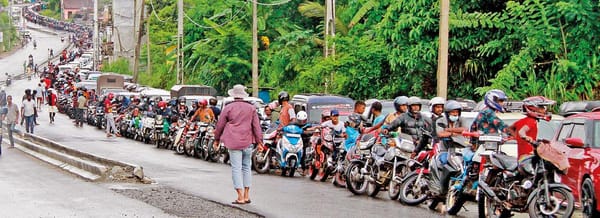Former Army Commander and ex-MP Field Marshal Sarath Fonseka has launched a scathing attack on former President Mahinda Rajapaksa, accusing him of colluding with the LTTE during the final stages of Sri Lanka’s civil war, misappropriating state assets, and betraying the nation’s trust. In an explosive remark, Fonseka declared that his former boss “deserves death by hanging.”
Mahinda’s party, the Sri Lanka Podujana Peramuna (SLPP), was also not holding its tongue, firing back with a barrage of counter-attacks. At a press briefing, SLPP media secretary Manoj Gamage quipped: “A lion does not fear a dog’s barking” — the lion, of course, being Rajapaksa, and the barking dog, Fonseka.
Beyond the animal metaphors, the SLPP flatly denied Fonseka’s allegations and countered with serious accusations of their own. They revived the long-simmering claim that Fonseka himself deployed the team responsible for assassinating journalist Lasantha Wickrematunge. They also raised the question: “When almost all other military commanders are accused of war crimes, how is Sarath Fonseka left untouched?”
A political observer told Jaffna Monitor that, at this rate, the feud could soon descend into both sides accusing each other of killing Tamils during the final phase of the war. Another commentator recalled a classic rural Jaffna anecdote: in a village tavern, a drunken man walked in while two other drunkards were brawling. Turning to the tavern owner, he said, “Forget their drunken quarrel — just pour me a pot of toddy.” Much like Fonseka and the Rajapaksas — each dismissing the other’s sins while reeking of the same.
Fonseka’s Claims: Betrayal, Corruption, Ceasefire Mystery
At a public meeting in Matara, Sarath Fonseka urged the government to demonstrate political will by appointing a “powerful commission” to investigate alleged deals made with the LTTE during the war years and the 2005 presidential election.
Fonseka accused the Rajapaksa family of bribing LTTE leader Velupillai Prabhakaran with USD 2 million ahead of the 2005 presidential election to ensure a Tamil voter boycott, claiming the money was later used by the LTTE to purchase boats that destroyed ten Sri Lankan Navy Fast Attack Craft.
He alleged that Basil Rajapaksa personally informed him of the payment. Anticipating the inevitable question about his inaction, Fonseka quipped that he had “a war to win, not a payoff to chase.”
Fonseka further charged that Mahinda Rajapaksa declared a 48-hour ceasefire on January 31 and February 1, 2009, enabling the LTTE to launch a devastating strike that killed 500 Army personnel. “If not for that truce,” he said, “the Army could have finished off the LTTE by March 2009.” Instead, the war dragged on for several more weeks, ending only in mid-May.
Taking his attack to its fiercest point, Fonseka declared that, under the Constitution, Mahinda Rajapaksa “deserves death by hanging” for what he described as treachery during the final phase of the war. He argued that any anti-corruption campaign would remain meaningless unless it confronted Rajapaksa directly. “If this government cannot act decisively against Mahinda Rajapaksa,” Fonseka told the crowd, “then it cannot claim to have fixed this country.”
He went further, arguing that what Sri Lanka truly needed was a “benevolent dictator”—and, without hesitation, offered himself for the role. Fonseka said he was confident he could steer the country toward success, “no matter what the critics say—especially those who never forgave me for leading the Army against the LTTE.”
“Had I lost the war,” he added, with a logic only Fonseka could understand, “they might have accepted me.”
To drive home his point, Fonseka cited Rwanda, noting that after immense bloodshed and destruction, the country was resurrected under Major General Paul Kagame. The subtext was unmistakable: in Fonseka’s view, Sri Lanka too could be ‘rescued’ by a man in uniform.
But he conveniently left out one awkward truth — Sri Lanka had already tried the “soldier-turned-savior” experiment with Gotabaya Rajapaksa. His military mindset, instead of rescuing the nation, marched the economy straight into bankruptcy.
Prabhakaran Spared Families — the Rajapaksas Didn’t
Recalling his own arrest in February 2010, just weeks after the presidential election, Fonseka alleged that the Rajapaksas forced 35 senior officers—including Major Generals, Brigadiers, and Colonels who had served under him—out of service.
According to him, the Rajapaksa government not only deprived these officers of their pensions but also blocked their attempts to find private-sector jobs, plunging their families into financial hardship.
He also recounted how his daughters, then studying in the United States, were interrogated for hours at the airport upon returning to Sri Lanka—allegedly on Rajapaksa’s orders. “Even LTTE chief Prabhakaran never targeted our families,” Fonseka said, his eyes welling up. “But the Rajapaksas did.”
SLPP Response: Denials and Counters
The SLPP, through its media secretary Manoj Gamage, fired back with both denials and accusations, claiming that long-standing suspicions still linger over whether Fonseka himself deployed the team that assassinated journalist Lasantha Wickrematunge.
According to Gamage, Fonseka’s latest “blistering outbursts” are nothing more than a political smokescreen. “Now that this government has reopened investigations into the Lasantha case, the suspicion is that Fonseka — being implicated himself — is attacking the Rajapaksas to cover up his own role,” he alleged.
Gamage went further, reminding the press that it was Mahinda Rajapaksa who elevated Fonseka to the rank of Army Commander. “It is no surprise he now bites the very hand that fed him. But a dog barking does not scare a lion,” he said.
On Fonseka’s claim that Rajapaksa offered a ceasefire in the final days of the war, Gamage scoffed: “If the war was truly about to end, why did Sarath Fonseka fly to China to purchase weapons? Why were new weapons needed for a war supposedly winding down? Neither Mahinda Rajapaksa nor Fonseka himself knew the war was ending.”
And then came the sting: “Almost every other military commander from that period has faced war crimes allegations — except Fonseka. The reason is clear — it was Fonseka who betrayed the military to Western powers,” Gamage declared.
When reporters asked hard-line Sinhala nationalist politician Wimal Weerawansa about Fonseka’s remark that Mahinda Rajapaksa “deserves death by hanging,” Weerawansa replied: “Yes — Mahinda should be hanged, not because of Fonseka’s allegation, but because he made Fonseka army chief.”
A Sinhala political commentator told Jaffna Monitor that what Fonseka and the Rajapaksa camp are doing “is like digging the same toilet pit — both know their filth (read: war crimes) is buried there. By the time they’re done digging, the stench will rise — and neither will escape the smell.”

